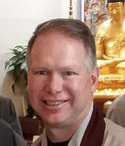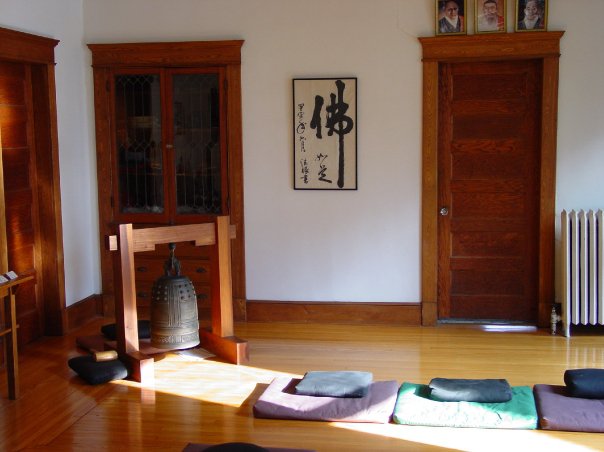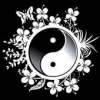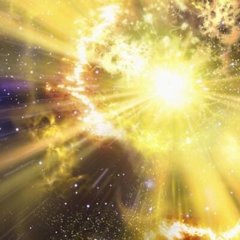-
Content count
171 -
Joined
-
Last visited
-
Days Won
3
-
Ghost of Christmas past Karma planted, and fruition No escaping that!
-
Thanks for the response, Doc. Some really solid points made! My question was very specifically about Daoist practice, I suppose even more specifically about Neigong, so I appreciate that portion of the response especially. For readers of this thread, my background is Zen Buddhism, and I have a very strong daily sitting practice, as well as doing regular retreat work and twice weekly Sangha practice. The specific practice I do does not involve visualization. I was just curious why some Daoist lineages diverge on the topic of visualization.
-
Thanks for taking the time to reply, Neirong. If the mods feel the post is more appropriate somewhere else on the forum, please feel free to move it there. Actually, there are lots of ways to incorporate visualization with strength training. But, that's a different topic, I suppose. My question was specifically about Daoist practices, which was answered in the previous quote (demanding, difficult, etc.). Since I don't know the specific qualifications needed to make this judgement, I will just leave this alone. Seems a little over the top though.
-
Prolly rather talk about stuff the Jewish folks invented.... Anyway, Nathan Brine makes some points that resonate for me in this one:
-
Hi all, I did a search for this, but didn't really find what I was looking for. I notice some systems are pro-visualization, while other seem against it. I was wondering what the reason for this was, and also what are the pros and cons of using visualization in our practice. Thanks in advance! Keith
-

If there is no self then how does rebirth work?
Keith108 replied to Tommy's topic in Buddhist Discussion
The words "no-self" set up a dualism that isn't there. Better is "not-self". For instance: From here. Interestingly, there are two other translations offered, both rendering anatta as "not self". "No self" is simply not a useful translation of anatta. If the five agregates are not self, then what sees, hears, etc.? That can only be discovered through direct realization. _/|\_ -
bells and whistles, farts marvelous activity now, where is my fan?
-

If there is no self then how does rebirth work?
Keith108 replied to Tommy's topic in Buddhist Discussion
Thanks for the kind words, Bob. Dukkha (dissatisfaction), is one of Buddhism's Three Marks of Existence. The other two are Annica (Impermanence), and Anatta (not self). Stirling brought up the oft used "maybe so" story that is parable about life being in constant flux, as with your brother's jail experience. I used the word "dissatisfaction", instead of suffering. Life isn't a constant stream of depressing suffering. There are plenty of joyful moments, it's just that they don't last. That's impermanence. Nothing lasts. So, our life becomes a constant chase to find some kind of lasting happiness. And, it's exhausting. There is also the constant need to prop of the idea of self. This idea has only two jobs: find lasting happiness in world where that is impossible. And to not die. This idea is very pernicious, and leads to all kinds of mayhem and yes, suffering. So, these three "Marks" taken together, either moment to moment, or lifetime to lifetime if you like, constitute samsara, which is the problem that Buddhism addresses. It's really not as depressing as some make it. For me at least, it is very liberating. Understanding the issue is the first step to overcoming it. _/|\_ -

If there is no self then how does rebirth work?
Keith108 replied to Tommy's topic in Buddhist Discussion
PS It also occurred to me that the best advice I ever heard was to "Practice and see what happens". You don't have to believe anything. Studying the Dharma just helps give us the background framework for practice. But it is like the old saw: It's not enough to describe the taste of an apple. You actually have to take a bite." _/|\_ -

If there is no self then how does rebirth work?
Keith108 replied to Tommy's topic in Buddhist Discussion
We are off topic, but these are teaching words and stories. Buddhist practice is a stripping away of delusion. The three poisons of ignorance, hatred, and greed cloud over a clear view of the world and ourselves. Through the practice of silent sitting, we see our delusive habits, and begin to let them go. Then, in an instant, correct view appears. This is called "enlightenment". That correct view is always there. And yes, for me that's a story. I am not claiming any kind of enlightenment, although there have been glimpses. Those glimpses give me trust in the Dharma. Dukkha is as plain as touching my nose on my face. It's a delusion to think otherwise, for me at least. It is caused by a never ending search to be happy. Not getting enough of the things I want, and too much of the things I don't want. It's not complicated. It's right there, plain to see, every moment of every day. Fortunately, once we see it, we can come to terms with it, and it becomes less troubling. Also, as far as the general conversation goes, I think it's important to say that I don't personally deny the existence of spiritual worlds, God, Supreme Self, etc., etc. I just don't find them important to practice and my life. Lifetime to lifetime rebirth is like that. I have the Precepts, which help guide me along to something resembling a morally upright life, but moment to moment is where it's at for me. And lastly, it's even more important to note that I don't think that I am speaking for all of Buddhism. In fact, I just speak for just one person practicing a very small part of Buddhism (Western Zen with Korean roots). Buddhism is a very wide and varied religion, with many cultural and practical differences with the way it is practiced around the world. Theravada, Pure Land, and Vajrayana, etc. practitioners would likely have very different responses to the OP. _/|\_ -

If there is no self then how does rebirth work?
Keith108 replied to Tommy's topic in Buddhist Discussion
Welp, I guess you told me! Since we are in the Buddhist discussion forum, I feel ok with my words. The words above are a jumble of defensive nonsense. Round and round... (Get it? it's a rebirth thread! ) -
The galactic web Infinite smaller pieces Until nothing left
-

If there is no self then how does rebirth work?
Keith108 replied to Tommy's topic in Buddhist Discussion
As with the historic Jesus, the historic Mohammed, etc., etc. To Tommy's reply, I agree completely, and hopefully that came across in my post. I certainly don't want to set myself as some kind of guardian of Buddhism. It's good to have different viewpoints. But, it's also good to understand what Buddha dharma is and is not. Astral planes, supreme selves, souls, watchers, spiritual worlds, etc. are categorically not that. The Buddha taught dukkha, and the end of dukkha. Given the forum category we are discussing this in, I think it's ok to point that out. Of course, it's also ok to point out that this is just my idea and opinion. -

If there is no self then how does rebirth work?
Keith108 replied to Tommy's topic in Buddhist Discussion
Tommy wrote: It's the only answer. Anatta (non self) can't be puzzled out, it has to be experienced. Buddhism is a practical science, applicable to your daily life. Rebirth is like that. Since lifetime to lifetime rebirth can only be experienced by dying, it's preferable to consider moment to moment rebirth, which can be experienced anytime. A good study of dependent origination will give one the tools support that experience. Please recognize that most of the discussion in this thread, while interesting, has little to do with Dharma as the Buddha taught, even though the question was posted in the Buddhist Discussion forum. That's to be expected, as most of the folks who post regularly here are not Buddhists. This isn't meant to be a criticism, just something worth pointing out. _/|\_ -

If there is no self then how does rebirth work?
Keith108 replied to Tommy's topic in Buddhist Discussion
You are welcome, Tommy. So, why take the time to study this? For me, it was sitting in a class about Eastern Religions in college. It was an elective, as the subject had always been interesting. But, I knew nothing at all about Buddhism. Then I learned this: Dukkha (a deep down dissatisfaction with life) Cause of Dukkha (frustrated desire - getting too much of the things we don't want, and not enough of the things we want) End of Dukkha (it's not necessary to live that way) Way to the End of Dukkha (Buddha, Dharma, Sangha. Classically, the Noble Eightfold Path) This is the Four Noble Truths. Sometimes I joke that I wish I had never heard of this. It's like that scene in the Matrix where the guy asks to be put back in the program. We spend our short lives careening around trying be happy in a world where it's impossible to be happy. At every turn, I could see the truth of Dukkha and the Cause of Dukkha. It isn't depressing, as some people say. It's a relief, because there is a way to end it. That end isn't happiness, it's acceptance. If there is something that I don't understand, such as the inner workings of the universe, or lifetime to lifetime rebirth, I just set it aside. Most people know the story about the man shot with an arrow, and how he won't allow the arrow to removed until he understands who shot it, why, how old they were, etc. By the time he understands all this, he dies. If Buddhism is just a philosophical pursuit, that's cool. But, it offers so much more. _/|\_


.thumb.jpg.0279361507cce6eb60b037b7a68d8dc9.jpg)






